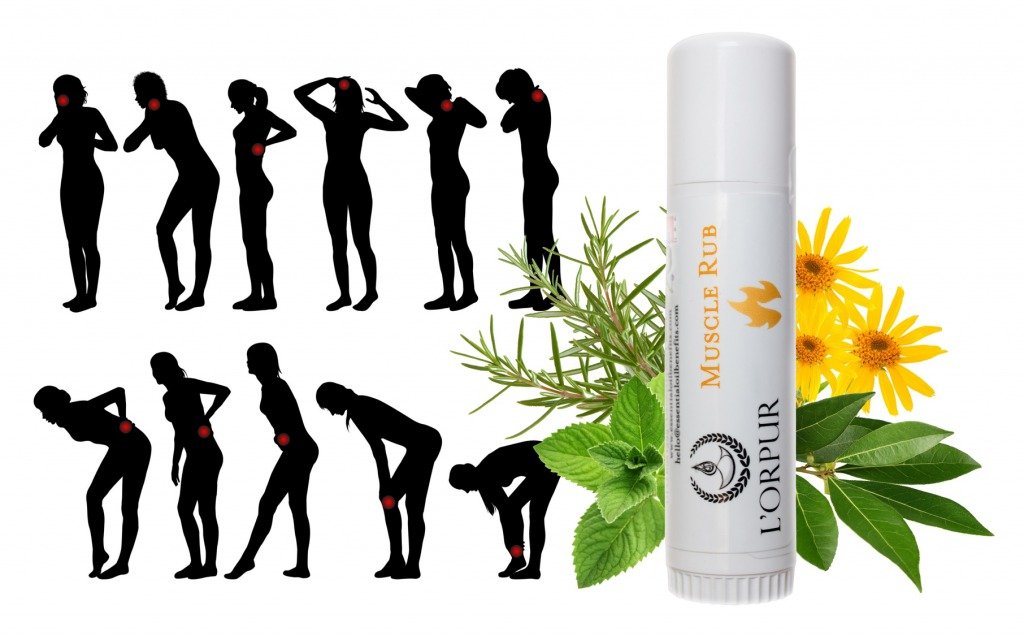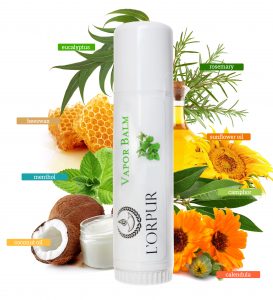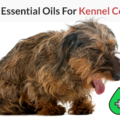Ah yes, the joys of fall and winter; Some eggnog, ice games, a new year around the corner. Then all of a sudden it’s cough city left right and center. Sorry guys, where are my manners, almost forgot the customary salutations.
Howdy readers, today’s segment is all about one of the most common body quirks. Sure, we’ve all had a good cough or two in our lifetimes.
Maybe it was just a short, mild cough to help clear your lungs and airways. Or perhaps yours was a more persistent, chesty cough that can be described as more of whooping.
Either way, fighting off a bout of coughs is never fun or pleasurable. After a while, it can become annoying, painful, excruciating, and outright torture for your overworked lungs.
While most cases tend to clear on their own after a few days, nothing sucks more than a chronic cough that just won’t go away. The repeated reflex and sputters not only disturb you by day, but they can also keep you up at night and leave you feeling tired, battered, and exhausted.
In more severe cases, the coughs have been known to cause extensive damage such as rib fractures. But before I go scaring you with more symptoms, I think it’s better if we take it from the top.
In this segment, we’ll be looking at what exactly a cough is and how it presents itself in our bodies. We’ll also be investigating all the different types of coughs and what their primary causes are. After that, we’ll be delving deep into all the medical treatments available for coughs.
As always, Olivia’s got all the best cures and home remedies as well as some age-old recipes to help you get rid of coughs for good. So stick around folks, plenty of great stuff lined up for you here today in this comprehensive, in-depth guide to everything you need to know about coughs.
What Is A Cough?
According to medical experts, a cough can be described as a sudden and repetitively occurring protective reflex that helps clear your larger breathing passages of irritants, fluids, microbes and other foreign particles.
Typically, a cough reflex consists of three different phases. The first is a deep inhalation of air followed by a forced exhalation against a closed glottis and the last step is a violent release of the air from the lungs following the opening of the glottis accompanied by a very distinctive sound that characterizes a cough.
Coughing can either be voluntary or involuntary.
In most voluntary cases, you could be just trying to clear your throat of anything stuck in there such as mucus or smoke. However, inadvertent coughs have plenty of causes and risk factors as we will see later on.
Likewise, there are different types of coughs that are classified according to its character, duration, timing, and quality. For the duration, a cough can either be acute if it is present for a period of less than three weeks and subacute if present for anywhere between three to eight weeks.
Most coughs are considered chronic if they last longer than eight weeks. Characteristically, a cough can be dry or what is referred to as non-productive or it can be productive when sputum and phlegm are produced.
If your coughs only occur at night, then you might have what is called the nocturnal cough. So, just how do you know that you have a certain type of cough?
Signs And Symptoms Of Coughs

More often than not, frequent coughing indicates the presence of an underlying disease or condition. This makes it very difficult to tell the difference between the symptoms of a cough and the symptoms of the underlying illness.
But while most cases have their own way of presenting themselves, coughs tend to have common and widespread symptoms depending on the cause.
For starters, coughs caused by infections carry symptoms such as chills, fever, body aches and sores, runny nose, sinus pressure, phlegm, sputum, post nasal drip, headaches, nausea, vomiting among others.
However, coughs caused by non-infections causes have less extensive symptoms. If you were exposed to some chemical vapors or irritants, then the symptoms will only be coughing, wheezing and difficulty breathing.
As always, I’ve compiled a list of all the signs and symptoms that are normally associated with frequent coughs.
- Stuffed or runny nose
- Chills and fever
- Body aches and sore muscles
- Nausea and vomiting
- Headaches and sinus pressure
- Phlegm, sputum or post nasal drip
- Hoarseness
- Chest pains
- Wheezing and shortness of breath
- General body fatigue
- Coughing up blood (severe cases)
- Fractured ribs (severe cases)
The symptoms will largely depend on the cause of your cough. That said, let’s look at some of the main culprits that are likely responsible for your cough.
Causes And Risk Factors For Coughs
Coughs tend to be indicators of an underlying disease or health condition. If chronic or frequent, then you can be sure that there’s a disease involved.
In fact, many bacteria and viruses actually benefit from an evolutionary perspective by using coughs to spread from one host to another. But this is just one of the many possible causes and risk factors for coughs. Others include:
Infections
Respiratory tract infections are the most common causes of airway irritation and coughs. These include infections such as the common cold, pneumonia, acute bronchitis, tuberculosis or pertussis.
In most short-term coughs, the culprit is almost always a respiratory tract infection. In this case, people usually experience a dry and nonproductive cough with virtually no phlegm, a tickle in the throat and tightness all around the chest.
Reactive Airway Disease
Diseases like asthma and bronchitis could also be responsible for unexplained coughs. Research actually shows that slight coughs could be the only symptom most people with asthma have.
However, associated symptoms such as shortness of breath, wheezing, and a tight feeling in the chest can be expected. Other airway diseases such as bronchitis are characterized by a persistent cough with phlegm, mucus, and sputum.
Gastroesophageal Reflux
If your cough is sudden and unexplained, then one plausible explanation could be that you have gastroesophageal reflux disease. This typically occurs when the acidic contents of your stomach rise back up through the esophagus leaving a sour taste in the mouth.
While half of the people with GERD won’t experience it, the other half will experience coughs that could lead to additional respiratory ailments.
Air Pollution
Now, when I say air pollution, I hope you understand that this includes smoking. Irritants and chemicals do play a huge role in causing coughs, but none of them have effects as dire and as far reaching as regular, chain-smoking. Smoking not only affects your respiratory system, but it also has an impact on the cardiovascular system as well.
Foreign Bodies
Get your minds out of the gutter guys; as much as we all enjoy foreigners, that’s not the kind of body I’m talking about (at least not today). In this case, I’m referring to a foreign body in your airways.
Picture the time you ate some rice or guzzled a drink and some of it went down the wrong pipe. You must have coughed up a lung trying to get the food dislodged, right? Not to worry, this is just the body’s way of protecting itself in case any particles try to make their way to the sensitive lungs.
Treatment, Cures, And Remedies For Coughs

We’ve all heard the old adage with sayings like, “a little cough is good for you,” and “just let it run its course.” But like any other ailment, there’s always something you can do to help speed things up. When it comes to treating coughs, getting to the root cause plays a big role in recovery.
More often than not, you’ll find that there’s more than one underlying condition causing the cough. I’ve compiled and categorized some of the recommended treatments for coughs based on the underlying cause.
i) Allergic Coughs
If your bout of coughs is brought on by allergic triggers such as dust, pollen, or other pollutants, then it goes without saying where the treatment should start.
Before going for the heavy stuff, doctors recommend treating allergies with antihistamines, decongestants, and glucocorticoids. These drugs and pharmaceuticals will also help with postnasal drip and other symptoms associated with chronic coughs.
ii) Infection-Based Coughs
Coughs caused by infections such as bronchitis and pneumonia are typically treated by a barrage of pharmaceuticals. These include antibiotics such as azithromycin (Zithromax), cephalosporins which help reduce the inflammation caused by these infections.
Some cases of coughs come with sharp chest pains known as pleurisy and discomfort. In such cases, doctors will drug…I mean, medicate their patients with a throng of analgesics and other painkillers.
iii) Acidic Coughs
If your coughs have been caused by recurrent gastrointestinal reflux, then the first course of action is obvious. Lifestyle changes will really help put the reflux in control and as a result, minimize and eradicate the cough.
But if you are unable to maintain the change in lifestyle or the coughs are becoming increasingly debilitating, then your doctor will recommend some acid blockers and antispasmodics.
iv) Cough Suppressants
If for any reason your cough can’t be diagnosed and it is causing some serious disruption in your day to day activities, then the next step will be to prescribe cough suppressants.
Over the counter suppressants should help clear the airways of excess mucus, soothe sore throats and help offer relief from chest pain. However, the effects of these cough suppressants are very minimal and extremely temporary.
Recommended Natural Product To Soothe Throat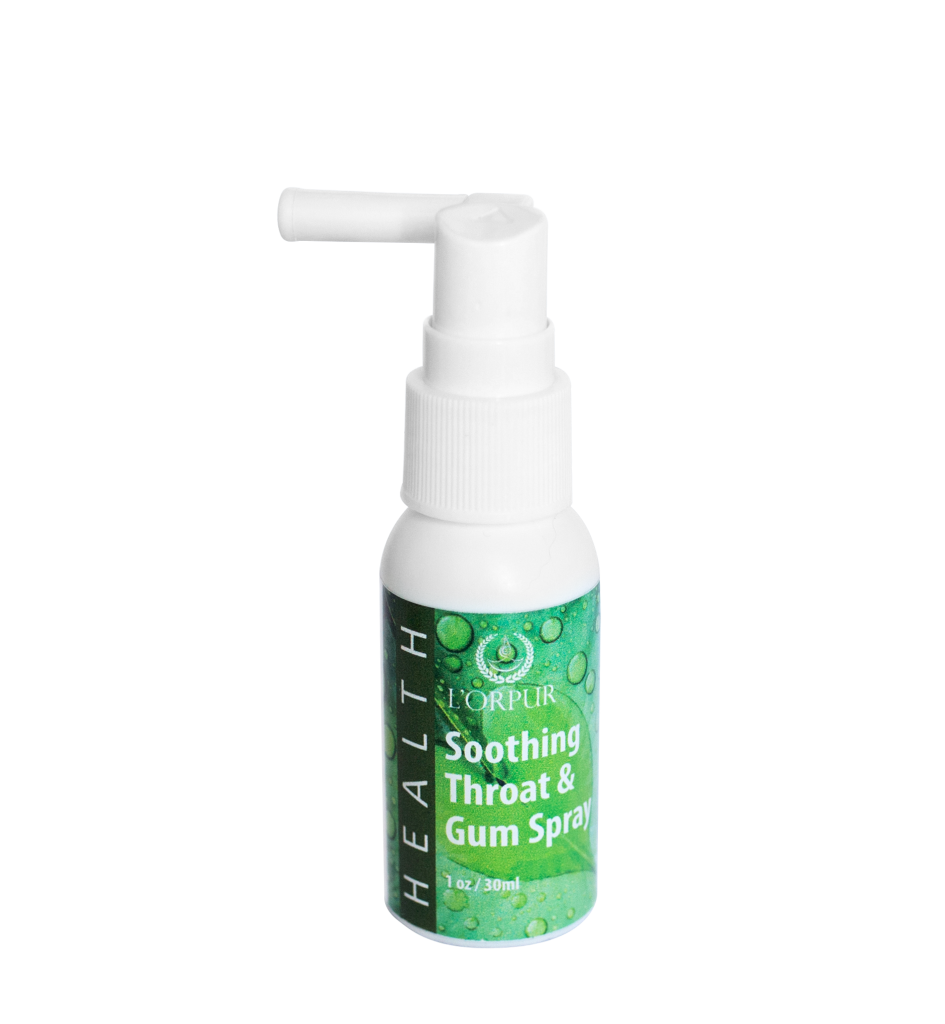

Can Essential Oils Help With Cough
We all know that creeping feeling all too well – the chills, the fatigue, that slithering congestion in the middle of your chest and before you know it… COUGH COUGH COUGH, you’re coughing up a lung in the middle of a workday.
And not mild coughs mind you! I’m talking blasts, explosions and guffaws so loud people will think its world war Z all over again.
For Pete’s sake! Trying anything is better than just sitting there while your airways take a beating.
Long story short, a good treatment is not the same as getting treated for good. Instead of rushing for over the counter medications, pharmaceuticals and synthetic cold medicines at the first sign of a cough, there are so many natural treatments and remedies that are ten times more effective.
If you’ve ever had to treat the side effects of some of these cough medications and prescriptions, then you know exactly why you need to avoid them. Let’s face it, over the counter decongestants and antibiotics just aren’t for everyone.
Apart from being ill-advised for people with high blood pressure, pregnancies, and other health issues, some of these drugs can have adverse and damaging side effects that include headaches, drowsiness, restlessness, rapid heart rate, amongst many more.
Frankly, I don’t think it’s worth risking your overall health for just a few moments of temporary relief. So, where does our journey to all natural treatment start?
With essential oils of course; Mother Nature’s own healing tonic. Also known as ethereal or volatile oils, essential oils have been helping people out for centuries now. These wonderful oils provide a concentrated essence of the original plant’s flavor, fragrance, and medicinal properties.
Essential oils are packed with benefits that not only help fight inflammation and other common causes of coughs, but also give the immune system a much-needed boost.
Similarly, essential oils assist the body fight bacteria, infections, parasites, microorganisms and other harmful toxins all while detoxifying it. This reduces the body’s susceptibility to outside threats, irritants, and risk factors that could contribute to developing coughs.
I’ve done a thorough search for the most recommended essential oils for the job. Of course, there are tens if not hundreds of these miracle oils.
But for convenience’s sake, I’ve compiled some of the most effective essential oil recipes for combating all sorts of coughs and some age-old recipes to help you put them to good use.
8 Best Essential Oil Recipes For Coughs

PART A: massage blends and chest rubs
Recipe 1: Throat and Chest Massage Blend

Ingredients:
- 6 drops Oregano
- 4 drops Rosemary
- 4 drops Peppermint
- 3 drops Eucalyptus
- 30ml (1 ounce) of Fractionated coconut oil
Method:
When it comes to coughs, nothing works better to soothe the onset than a nice, essential oil massage rub. Now that you’ve got all your ingredients together, let’s get started. Proceed to mix your essential oils in a small glass bottle or non-reactive bowl in the order indicated above.
As always, the recipes are just a guide; you’re ultimately free to play around with the recipe a bit. For example, you can use almond oil or any other preferred carrier oil for your base instead of fractionated coconut oil.
Once you have everything mixed in, stir well to combine the oils and apply it on your palms. Use the blend as a massage rub and massage all around the throat, base of the skull, and chest two times a day.
If you’re an essential oil lover and an Olivia follower then it’s easy to see why these particular oils work great for a massage rub.
Oregano essential oil is an incredibly notorious antiviral with some pretty potent antimicrobial and anti-inflammatory properties – so you’ll need lots of it if you’re hoping to beat your cough.
Similarly, eucalyptus is another essential oil that you can’t afford to skimp out on. Its unrivaled decongestant properties make it a valuable ally.
Lastly, the Rosemary gives your massage blend a pleasant aroma while the peppermint offers a cooling and relaxing effect.
Recipe 2: Pain Relief Body Rub
Ingredients:
- 3 drops Lemongrass
- 3 drops Ginger
- 2 drops Clove
- 2 Tablespoons Jojoba oil
Method:
Just as before, start by combining the essential oils drop by drop in a glass or bowl. After that, proceed to add in your carrier oil of choice and mix thoroughly.
Apply the blend to aching parts of your body such as chest, back, throat, temples, and joints. Coughs can have extensive reach when it comes to battering your body. This body rub will not only help with pain, but the essential oils chosen come with some hidden benefits.
For starters, the lemongrass oil is packed to the brim with antimicrobial, analgesic, antiseptic, bactericidal, diuretic, fungicidal and anti-inflammatory properties in addition to its sedative capabilities. This makes it quite the useful oil for relieving headaches, calming irritated airways, relaxing your nervous system, and treating other symptoms associated with coughs.
This blend is further complemented by ginger and clove and their powerful anti-inflammatory capabilities which allows healing of your irritated airways.
Recipe 3: Natural VapoRub for Dry Coughs
Ingredients:
- 22 drops Peppermint
- 20 drops Eucalyptus
- Quarter cup grated beeswax
- Quarter cup extra virgin olive oil
- Half cup virgin coconut oil
Method:
When it comes to chronic coughs, you can always be sure that shortness of breath will be a day to day issue. As such, the last thing you need is a clogged or stuffed up breathing system.
To make sure that your respiratory system is wide open and fully functional, a homemade vaporub can help your system take in even more oxygen and allow your body to overcome exercise limitations.
For this recipe, get a large mason jar and pour in the virgin oils and beeswax. Heat a little water over a pan and place the mason jar in until the contents melt. Stir to mix the beeswax and virgin oil sand once they’re well mixed, allow them to cool and add in the essential oils.
Pour your mixture into containers and allow it to set. You now have a pretty effective, all natural vapor rub blend that will help soothe irritation and substantially improve your breathing even through a severe bout of coughs.
Too busy to make up your own, why not try the L’orpur Vapor Balm!
PART B: essential oils to diffuse for coughs
If you really want to combat your coughs from the inside, then you’ll need a diffuser or vaporizer. Adding just a few drops of the best essential oils for diffusing can bring great relief to even the worst of cough symptoms.
That’s because a diffuser breaks down the essential oils into tiny molecules which spread into the air and reach every part of your room.
So not only do the oils enter your lungs and respiratory systems much easier, but the resulting atmosphere is also more pleasant thanks to improved air quality. With the right oils, you can help fight coughs, congestions, sinus infections, colds, flu and many more.
Recipe 4: Triple Power Diffuser Blend

Ingredients:
- 3 drops Eucalyptus
- 3 drops Lavender
- 3 drops Peppermint
- 2 drops Rosemary (optional)
Method:
For a blocked, stuffy nose and airways full of mucus and phlegm, you’ll need some of the most powerful essential oils for the job.
For this mix, simply add in the essential oils drop by drop in your diffuser and enjoy the benefits all day and all night long. However, you are advised to clean out your diffuser regularly to avoid buildup of bacteria and mold.
Eucalyptus and peppermint have been in use since the beginning of history when it comes to lung treatment. Eucalyptus in itself is an incredibly powerful decongestant with potent antibacterial, antifungal and antiviral properties. What’s more, it absorbs immediately into the lungs for faster healing.
I added peppermint and lavender essential oils due to the cooling and rejuvenating effect while the Rosemary with its antioxidant and antimicrobial properties gives your immune system a much-needed boost to overcome infection, bacteria, and other risk factors for coughs.
Recipe 5: Homemade Inhaler for Coughs
Ingredients:
- 10 drops Eucalyptus
- 8 drops Marjoram
- 7 drops Peppermint
- 5 drops Juniper Berry
Method:
Common sense dictates that the quickest way to your lungs is through the breathing system. That’s why anyone with recurrent coughs needs to learn how to make their own essential oil inhaler just in case there’s no diffuser at hand. When done right, this formula will not only help in reducing coughs, but also improve shortness of breath and wheezing.
For this inhaler to work, you’ll need to boil about 4 cups of water in a small pot and add the essential oils in after turning off the burner.
Next, cover tightly with a lid and wait for a few minutes before removing it. Quickly lean over the pot and cover your head with a towel to ensure none of the vapors are lost.
Breathe in the inhalation blend every 10 to 30 seconds and remember to keep your eyes closed to protect them from the steam. You should be able to feel your airways opening up and any excess mucus and phlegm loosening after a few rounds with the steam.
PART C: essential oil recipes for baby, toddler cough

With babies, toddlers and young children, it’s very important to make sure that you use the best quality essential oils topically and never use them internally.
Unlike adults, babies are very sensitive to the concentrated oils. So make sure that you dilute the ethereal oils properly to keep your child safe. I’ve compiled a few recipes that should help your baby overcome coughs and associated symptoms.
Recipe 6: Warming Blend for Fever Chills
What you’ll need:
- 3 drops of Lavender
- 3 drops Lemon
- 2 drops Sweet Marjoram
- 1 ounce of sweet almond oil (carrier)
- Small roller bottle
Method:
Combine all your essential oils in the roller bottle and top it off with an ounce of sweet almond oil. Gently shake the bottle to mix the ingredients, replace the roller and apply to the chest, throat, soles and back when the chills hit.
Apply to the spine and bottom of your baby’s/toddler’s feet for relief from fever. Applying the blend to these areas ensures that the child won’t touch or rub the oil off.
Recipe 7: Baby Congestion Clearing Formula
Ingredients:
- Drop of Sweet Orange
- Drop of Spearmint
- 1 Tsp Extra virgin olive oil
Method:
Rub the blend of essential oils and olive oil between your palms to mix all the ingredients together. For congested babies, rub the lotion on the chest, back of the neck, a bit on the temples and finish off under the feet.
Recipe 8: Baby / Toddler Diffuser Blend for Nocturnal Coughs
Ingredients:
- 3 drops Tea Tree
- 2 drops Lemon
- 2 drops Basil
- 1 drop Blue Cypress
- Humidifier or Diffuser
Method:
To make use of this blend, just add the above essential oils as indicated into your humidifier, diffuser or vaporizer and use normally.
In addition to the decongestant and anti-inflammatory properties contained in the blend, the essential oils will help freshen the indoor air. That’s because the extra humidity works to settle the dust and pollutants to keep baby in a clean, healthy and unpolluted atmosphere.
4 Home Remedies For Coughs
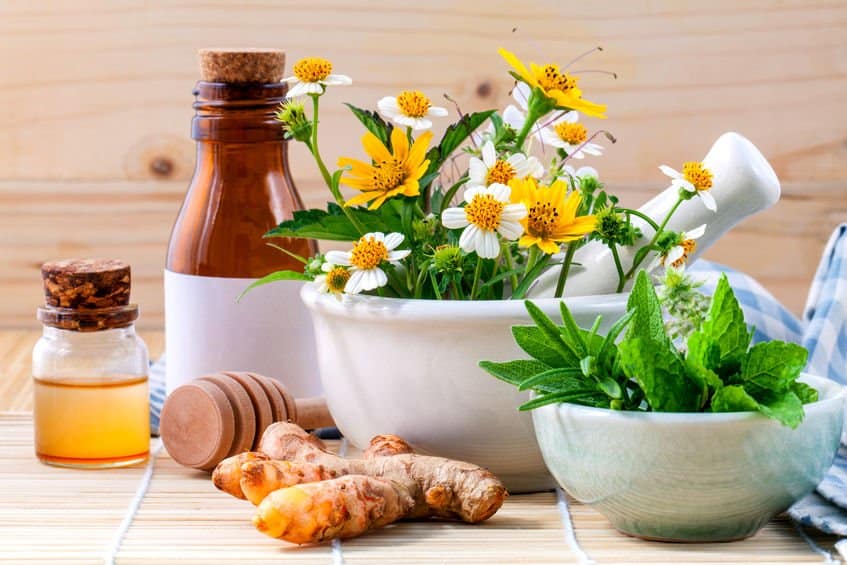
If there’s one condition with over a hundred different yet effective home remedies, it would have to be coughs.
Man has been trying to beat coughs, colds and other respiratory ailments since time immemorial with home remedies and backyard concoctions.
I’ve scoured the entire planet for some of the most effective and recommended home remedies for coughs; here’s what I found out.
1. Honey
When it comes to sore throats and recurrent coughs, good old honey remains a time-honored remedy for majority of the symptoms. Back in the day, there was nothing a nice spoonful of honey couldn’t solve. Recent studies actually show that honey is far more effective at treating the symptoms of coughs compared to over the counter drugs and cough suppressants.
Honey is a rich demulcent with a high viscosity and stickiness that does an incredible job of coating and soothing irritated mucous membranes. You can try taking a tablespoon three times a day or try many a grandma’s old standby before hitting the sack – a shot of bourbon with a few spoons of honey. Works like a charm.
2. Saltwater Gargle
For more than a couple millennia now, saltwater has been widely recognized for its potent anti-inflammatory and antiseptic characteristics. Whether it’s wounds, bruises, cuts, bites or other injuries, saltwater helps prevent infections and heal the affected area much faster.
Gargling a saltwater solution temporarily increases the pH in your mouth and makes it hard for harmful bacteria to survive. If you’re just catching the early signs of a cough and want to nip it in the bud, just dissolve a teaspoon of salt in warm water, give it a good shot, throw your head back and gargle away.
3. Hot Shower
If there’s one thing you should know by now, it’s that steam can be a very dreadful enemy to coughs, colds, and congestion. So you should try to take advantage of steamy situations whenever you can.
For one, you can always crank up the hot shower, close all windows and turn off any fans and ventilation to get a good, thick steam-room situation going. The steam works by getting into the lungs, soothing the irritated airways, loosening buildups of mucus and decongesting your respiratory system.
Take some essential oils assisted hot showers and baths whenever you need some instant, soothing decongesting.
4. Suck a Lemon
That’s right; it’s time to pucker up and get cozy with one of the most bitter lemons you can find. This incredibly popular yet die-hard technique is also quite effective for anyone in need of instant cough relief.
The lemons antiseptic, antibacterial, anti-inflammatory and cicatrizant properties all combine to deliver temporary healing to most cough associated symptoms. However, you’ll have to be willing to put up with a bitter and unpleasant tasting lemon slice in your mouth for a while.
The Final Word
There you have it my coughing, sputtering readers; all you ever needed to know about the lowly cough is at the tip of your fingers. With this information, treating and getting to the root cause of your cough should be much easier now.
Remember to avoid irritants and pollutants whenever possible and stay away from tobacco if you have chronic or recurrent coughs.
And lastly, take it easy and give your body enough time to rest and recover. Because at the very heart of it; a cough is still the body’s way of clearing any irritants or particles in the airways.
So make sure you stop wasting money on temporary solutions like lozenges and cough suppressants stock up on healthy, essential oils instead. Trust me; your body will thank you for it.


